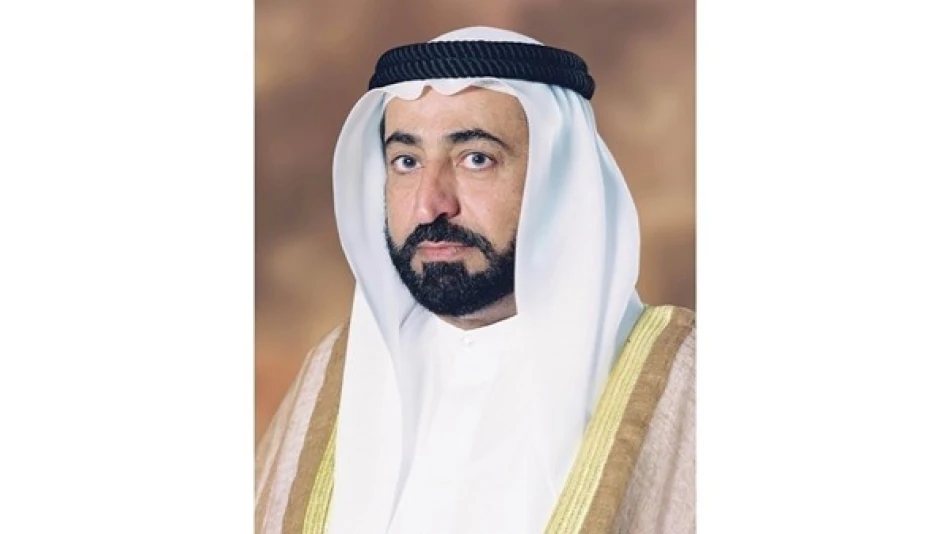
Sharjah Ruler Establishes Cultural Heritage Award Board of Trustees
Sharjah Establishes International Cultural Heritage Prize Board in Major Cultural Initiative
Sharjah has formed a new board of trustees to oversee its International Cultural Heritage Prize, signaling the emirate's continued commitment to positioning itself as a leading cultural hub in the Middle East. The move reflects Sharjah's strategic focus on soft power diplomacy through cultural preservation and academic excellence, potentially attracting international scholars and heritage organizations to the region.
Leadership Structure and Strategic Vision
Sheikh Dr. Sultan bin Muhammad Al Qasimi, Ruler of Sharjah and member of the UAE Supreme Council, issued an administrative decree establishing the board structure. Dr. Abdulaziz Abdulrahman Al-Musallam will chair the seven-member board, with Dr. Mohammed Youssef Al-Hammadi serving as deputy chairman.
The remaining board members include Dr. Rashid Ahmed Al-Mazrouei, Aisha Rashid bin Dimas, Nasser Abdulkarim Al-Darmaki, Khalid Badr Al-Budoor, and Abdulaziz Mohammed Al-Shahi. This diverse composition suggests a deliberate strategy to blend academic expertise with cultural administration experience.
Institutional Continuity and Governance
The decree establishes four-year renewable terms for board members, with provisions for seamless transitions between boards. This structure mirrors successful international cultural institutions, ensuring long-term strategic planning while maintaining operational flexibility.
Regional Cultural Competition Intensifies
Sharjah's latest cultural initiative comes as Gulf states increasingly compete for cultural leadership in the region. The UAE's broader strategy has seen Dubai focus on contemporary art and entertainment, Abu Dhabi develop world-class museums like the Louvre Abu Dhabi, while Sharjah has carved out its niche in traditional culture and heritage preservation.
This approach parallels Singapore's successful model of using cultural institutions to enhance international standing and attract tourism revenue. Qatar's massive cultural investments ahead of the 2022 World Cup demonstrate how smaller states can leverage cultural assets for global influence.
Economic and Investment Implications
For investors and cultural organizations, Sharjah's sustained investment in heritage initiatives creates opportunities in cultural tourism, educational partnerships, and heritage technology sectors. The emirate's focus on cultural preservation may attract UNESCO partnerships and international foundation funding, potentially generating significant economic returns.
The structured governance approach also signals institutional maturity that international partners typically require for long-term collaborations. This could position Sharjah as a regional hub for cultural research and heritage preservation technologies.
Long-term Strategic Impact
The establishment of this board represents more than administrative reorganization—it reflects Sharjah's understanding that cultural soft power requires institutional frameworks to achieve lasting impact. By creating formal governance structures around cultural initiatives, the emirate is building sustainable competitive advantages in the regional cultural landscape.
This move likely presages expanded international partnerships and potentially larger prize awards, as formal governance structures enable more significant funding commitments and international recognition. The four-year renewable terms also suggest this is a long-term strategic commitment rather than a short-term cultural project.
Most Viewed News

 Layla Al Mansoori
Layla Al Mansoori






